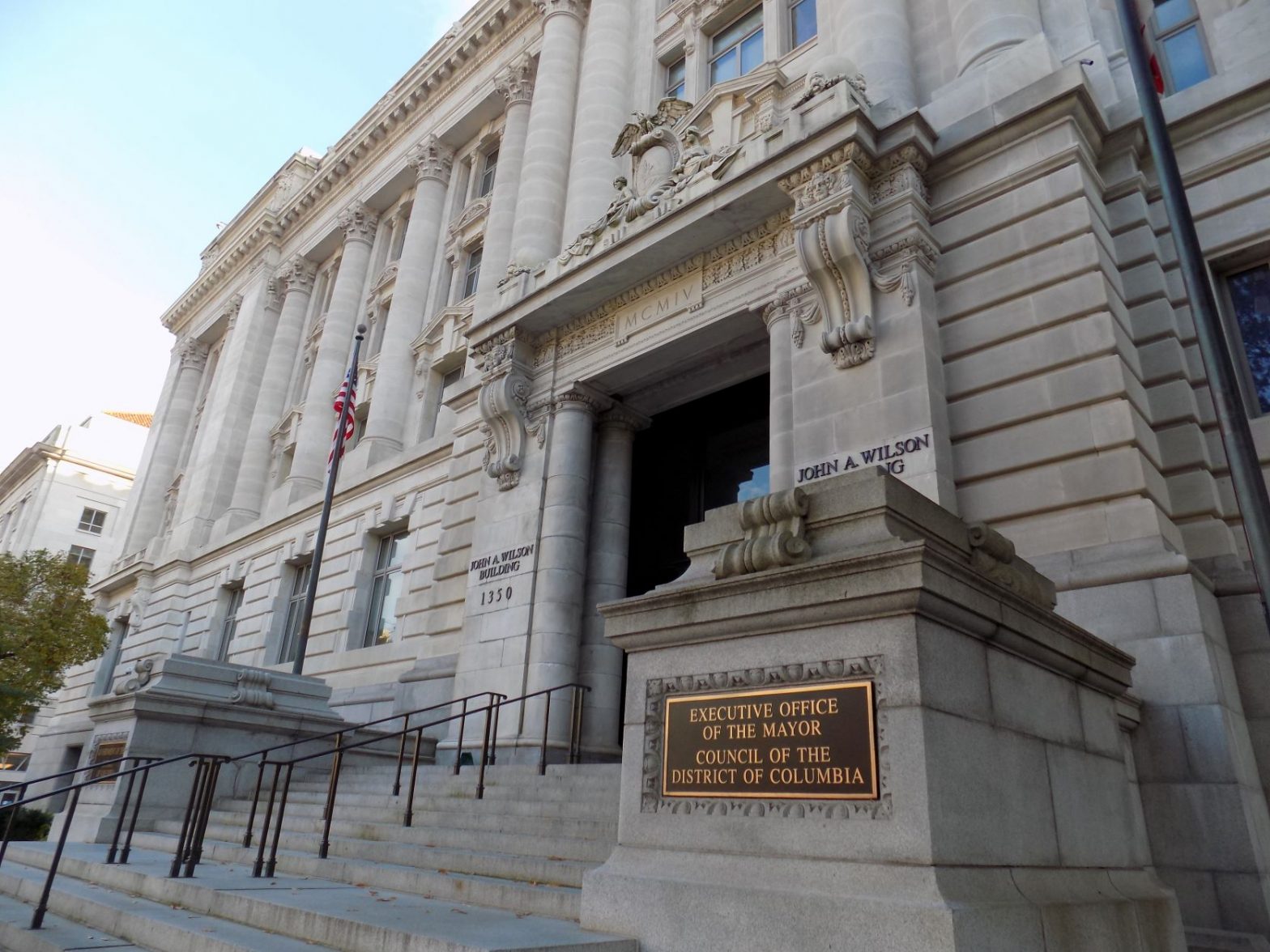DC Considers Wide-Ranging Anti-Discrimination Data Law

WASHINGTON — D.C. Councilman Robert White heard nearly seven hours of wide-ranging testimony about the proposed Stop Discrimination by Algorithms Act last week.
The proposed law would prohibit a wide range of businesses across the district from using algorithms to make decisions based on protected personal traits, including gender, race and religion. It would also require businesses using algorithms to disclose more information about how they are used, including submitting a report on usage to the attorney general’s office.
Opponents of the bill criticized it as too opaque and vague, saying implementing the new law would be costly and ultimately hurt consumers. Proponents welcome the law saying it modernizes civil rights laws, giving the district a better ability to crack down on discrimination through algorithms that can be hard to detect.
The legislation first proposed by Attorney General Karl A. Racine also reaches further than any other proposed law across the country because it applies to nearly every type of business and organization. However, small businesses would be exempt, according to the law.
“This bill is much stronger than anything I’ve seen across the country and could set a really good precedent for future state regulation,” said Nandita Sampath, a policy analyst for Consumer Reports, who supports the law.
“The use of algorithms to determine individuals’ access to life opportunities can be concerning without robust transparency and oversight. And has the potential to roll back much of the progress we have made from anti-discrimination law,” Sampath said, citing the lack of transparency in how algorithms are used on a daily basis to help make decisions on credit, housing, employment and healthcare.
Because the law would impact all industries, people from health care to restaurants came out to testify and ask specific questions about how the law would impact them.
Would small businesses like restaurants be on the hook for explaining the algorithms behind their targeted social media advertisements, asked Che Ruddell-Tabisola, the director of government affairs for the Restaurant Association of Metropolitan Washington. He said the law was too vague, and that more clarity was needed, particularly for smaller businesses who may not create the algorithms they use.
Many representatives from trade organizations representing the technology and finance sectors said they support the spirit of the law, but testified against the bill saying it was not specific enough.
“Ambiguous and inconsistent regulation at the state or local levels may undermine business certainty and create significant confusion surrounding compliance,” said Khara Boender, the state policy director for the Computers and Communication Industry Association.
Matt Kownacki, a policy analyst for the American Financial Services Association, agreed saying that the law would also unintentionally impact use of algorithms for things like fraud protection. The alerts people get asking them to verify purchases are generally triggered by an algorithm that takes into account global fraud trends, he said.
While businesses may support the same anti-discrimination goals of the law, they need to show they are working on the issues identified, Racine said when testifying on the legislation.
“While some corporate actors are starting to take a closer look at their practices, there is currently no uniform requirement that any kind of bias testing be performed. And without uniform requirements, many companies will not do this critical work,” Racine said.
Emily Paul, a project director at the policy organization Upturn and Ward 1 resident, talked about how nearly every renter in the district is subject to one of the tenant screening checks using algorithms and many employers use those automated background checks.
“When these decisions are outsourced to screening technologies and third-party vendors long-standing discrimination can happen at scale and go undetected,” Paul said.
The proposed law’s transparency requirements would help organizations like Upstart better detect discriminatory behavior without the immense burden currently needed to bring a discrimination lawsuit, she added.
Others disagreed that exiting civil rights laws are already enough to stop the discriminatory practices perpetrated by algorithms.
“While well-intentioned, policy makers do not need to enact AI-specific anti-discrimination laws because existing laws, ranging from the DC Human Rights Act to the ADA already prohibit discrimination,” said Daniel Castro, the vice president, Information Technology and Innovation. “AI is not a get out of jail free card, using AI does not exempt organizations from adhering to these laws.”
“Moreover, if the purpose of the legislation is to prevent discrimination, it should remain narrowly focused on discriminatory actions with adverse effects on individuals, rather than broadly regulating the use of AI for advertising and marketing purposes, which would likely have unintended consequences such as restricting targeted ads for coding bootcamps for women, or targeted ads around faith-based colleges,” Castro said.
White asked questions throughout the hearing to better understand how to improve upon the pending legislation.
The public hearings are ongoing, and the D.C. Committee on Government Operations is continuing to solicit written public comment on the legislation through Oct. 6.
Madeline can be reached at [email protected] and @MadelineHughes























